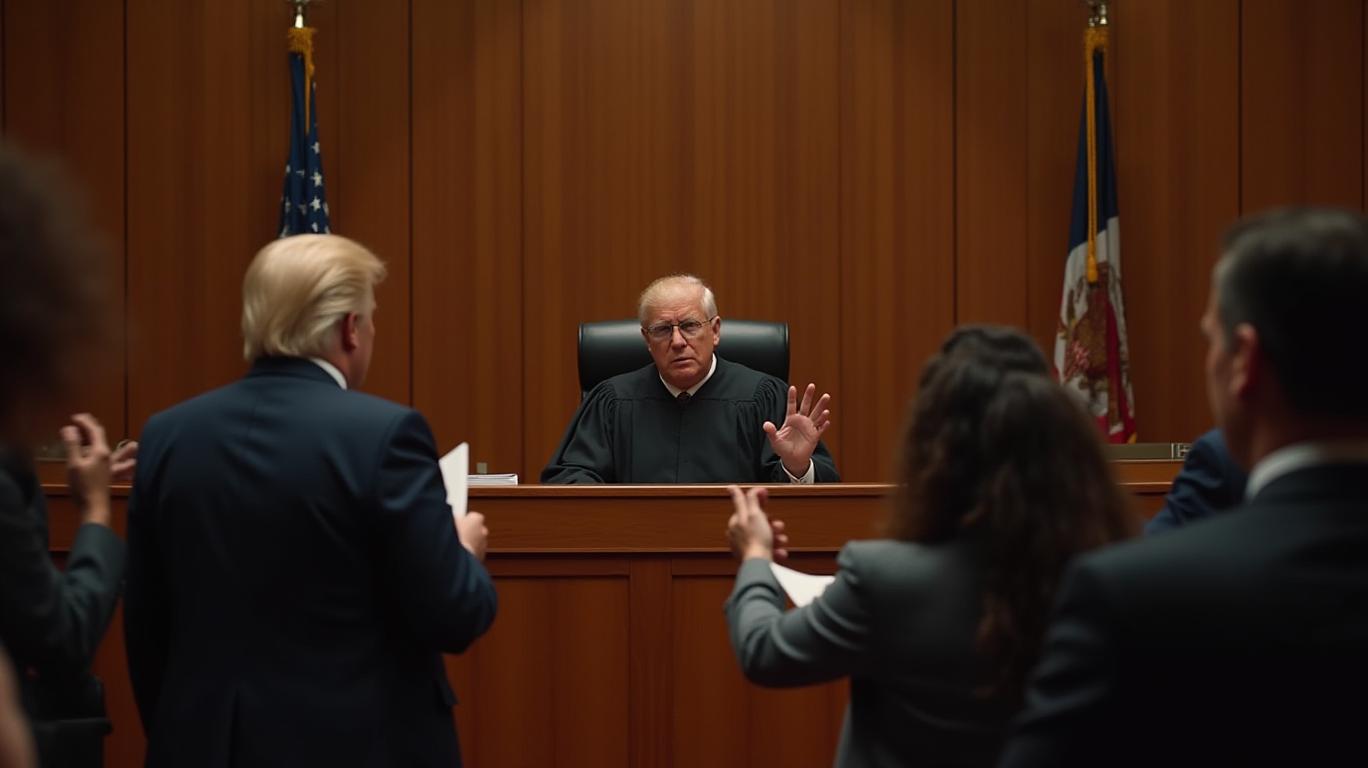Judge Halts Trump's Voter ID Order, Citing Constitutional Limits
A federal judge has issued a ruling that halts a significant portion of President Donald Trump's executive order, which aimed to mandate proof of citizenship for voting. The judge's decision aligns with the arguments presented by voting rights groups and Democrats, who contend that the Constitution grants the authority to regulate federal elections to the states, not the federal government. This ruling is a notable setback for Trump, who has consistently advocated for stricter voter identification requirements, asserting that such measures are essential to bolster public trust in the electoral process.
The executive order in question sought to overhaul various aspects of the U.S. election system. One of the key provisions that the judge blocked would have altered the federal voter registration form to include a requirement for proof of citizenship. This change was intended to ensure that only eligible citizens could participate in federal elections, thereby reducing the risk of voter fraud. However, the judge's ruling underscores the constitutional limitations on the president's authority to unilaterally impose such requirements, emphasizing that such decisions fall within the purview of Congress and the states.
The judge's decision highlights the ongoing debate over voter identification laws and their impact on election integrity and voter access. Proponents of stricter voter identification requirements argue that they are necessary to prevent fraud and ensure the legitimacy of election outcomes. Opponents, however, contend that such measures disproportionately burden certain groups, such as minorities and low-income individuals, who may lack the necessary documentation to comply with the requirements. This ruling is likely to fuel further discussions and potential legal challenges regarding the balance between election security and voter accessibility.
The blocked portion of the executive order would have had significant implications for the federal voter registration form, which is used by millions of Americans to register to vote. By requiring proof of citizenship, the order aimed to create an additional layer of verification for voters, potentially reducing the likelihood of non-citizens casting ballots in federal elections. However, the judge's ruling underscores the importance of adhering to constitutional principles and the separation of powers, which dictate that the regulation of federal elections is a shared responsibility between Congress and the states.
The decision is a reminder of the complex interplay between executive authority and constitutional limits. While the president has the power to issue executive orders, these orders must be consistent with the Constitution and the laws of the land. The judge's ruling serves as a check on the president's authority, ensuring that the regulation of federal elections remains within the bounds of the constitutional framework. This ruling is likely to have broader implications for future attempts to reshape election laws through executive action, as it sets a precedent for the limits of presidential authority in this area.

Quickly understand the history and background of various well-known coins
Latest Articles
Stay ahead of the market.
Get curated U.S. market news, insights and key dates delivered to your inbox.



Comments
No comments yet